Sanctions' removal emerges as a key issue as Iran's presidential race heats up
By Alireza Hashemi
As Iran's presidential race heats up and candidates present their blueprints on various issues to win voters’ favor, one key area of focus is their position on Western sanctions.
In televised roundtable discussions and other programs attended by the hopefuls in recent days, Western sanctions on the Islamic Republic of Iran and the nuclear deal have taken center stage.
Since the early 2010s, sanctions have been a contentious issue in Iran's political and economic discourse, particularly as successive US administrations escalated pressure on Iran over its nuclear program.
President Hassan Rouhani's administration, which took over in 2013, sought to remove sanctions through negotiations with Western governments, culminating in the 2015 nuclear agreement.
However, the multilateral accord was undermined in May 2018 when former US President Donald Trump reinstated previous sanctions and introduced new ones as part of the "maximum pressure campaign."
After Ebrahim Raeisi assumed office as Iranian president in 2021, he adopted a different approach to the issue of Western sanctions, which many observers deemed refreshing and pragmatic.
His administration continued negotiations with the West from a position of strength and simultaneously sought to nullify the sanctions' impact by forging new alliances with friendly countries, focusing on neighboring states and major powers such as China, Russia, and India.
Raeisi's administration also endeavored to join international alliances such as the Eurasian Economic Union, BRICS, and the Shanghai Cooperation Organization and was successful as well.
All six candidates vying to replace President Raeisi have pledged to continue his illustrious legacy but have markedly different approaches to the issue of sanctions and their removal.
This divergence was evident in roundtable discussions and the first of five debates held on Monday.
In the first debate, presidential hopefuls Masoud Pezeshkian and Mostafa Pourmohammadi contended that economic improvement hinges on bolstering international relations.
On the other hand, the other four candidates – Mohammad Baqer Qalibaf, Saeed Jalili, Alireza Zakani, and Ghazizadeh Hashemi – advocated leveraging domestic capabilities to neutralize sanctions.
Former health minister Pezeshkian called the sanctions a “disaster” that primarily affects the poor. He noted that obstacles to foreign trade, including Iran's blacklist status with the Paris-based Financial Action Task Force, have hindered foreign investments and caused substantial losses in oil exports.
Maryam Azarchehr provides updates on the latest developments regarding what the six presidential candidates in Iran have said. #IranVotes2024
— Press TV 🔻 (@PressTV) June 19, 2024
Follow: https://t.co/GKZwI4ePgj pic.twitter.com/QGFwntVjNe
Echoing Rouhani's stance, he asserted that significant economic growth is impossible without enhanced global ties and expressed willingness to extend an olive branch to the West.
"It is impossible to achieve 8 percent growth without connections and opening our borders to regional and global governments,” he said during the televised debate.
“Experts have said that to achieve 8 percent growth, we need $200 billion yearly. It is impossible to obtain that $200 billion under the current situation, so we need to communicate with the world and solve international problems as a necessity."
Former interior affairs minister Pourmohammadi emphasized sanctions' harmful effects, stating they have “locked up” the Iranian economy and made financial transactions impossible.
He argued that resolving economic issues depends on revising foreign policy and adopting effective diplomacy to unlock new opportunities.
"Our economy is large, our society is large, and so is our industry. We need to work with the world and seriously provide for people's needs,” he said in the debate.
The other four candidates, with different narratives and perspectives, asserted that Iran has managed to sustain its economy despite sanctions and criticized the notion of linking national prosperity to external factors and advocated for harnessing domestic resources and diplomatic efforts to remove sanctions.
Tehran mayor Zakani criticized the "diplomacy of begging" and argued that Iran's primary issue is not US sanctions but the economic policies influenced by US-led international institutions, which have led to economic stagnation.
He called for economic independence and the elimination of the US dollar from international transactions, emphasizing self-reliance for earning international respect.
“We need to focus on economic independence by removing the US dollar from our transactions and relying on our currency,” the outspoken former lawmaker said.
Jalili, the former secretary of Iran’s National Security Council, dismissed the idea that economic challenges stem solely from sanctions. He claimed that the “maximum pressure” campaign by successive US administrations had failed due to President Raeisi’s policies.
He criticized reliance on international agreements and advocated for a domestic leap to capitalize on global opportunities and achieve the desired growth within the next four years.
"Today, the country has tremendous opportunities, but the requirement for such global opportunity is an Iranian leap, and Iran can make this leap to achieve 8 percent growth in the next four years as part of the five-year plan,” he said in the debate.
“But what does it require? One shouldn't think it's as simple as only attracting investment."
Former lawmaker Qazizadeh Hashemi stressed the importance of strengthening internal power and resilience, referencing the US withdrawal from the 2015 nuclear deal as a lesson in self-reliance.
Lastly, Mohammad Baqer Qalibaf, the parliament speaker, acknowledged the impact of sanctions while emphasizing the necessity of a step-by-step approach to their removal or nullification.
He highlighted the potential of existing resources and strategic relations with countries such as China and Russia, as well as international organizations like BRICS and the Shanghai Cooperation Organization, to drive economic growth.
"All government organizations are on one side and the diplomatic organization is on the other side. It needs to solve the sanction problem and lift the sanctions. We have a specific program for that, which needs to be followed step by step,” he asserted.
Sanctions expert Mohammad Kazemi noted that while all presidential candidates agree on the need to lift sanctions, they propose different approaches.
Pezeshkian and Pourmohammadi view sanctions as the foremost issue, whereas other candidates do not consider them the primary concern in foreign affairs.
Qalibaf places greater emphasis on sanctions removal compared to the other three candidates. In contrast, Jalili believes that Iran's development is not contingent on lifting sanctions.
"Iran has demonstrated resilience under the most stringent sanctions, as seen during the 'maximum pressure' campaign,” Kazemi told the Press TV website.
“While some argue that Iran can endure sanctions but not thrive, Jalili is convinced that Iran can attain progress amidst sanctions, given its diverse capabilities.”
Four more debates will be held in the coming days, with the last one set for June 25. Voting will take place on June 28.
President Deby: French troops will leave Chad by end of January
Toxic waste removed from India's 1984 Bhopal gas tragedy site
Gaza police chief, deputy killed in airstrike on humanitarian zone
South Korea's Yoon vows to ‘fight until end’ despite facing arrest
Alawites targeted as HTS militants launch crackdown on Homs
VIDEO | Press TV's news headlines
Putin orders government, top bank to develop AI cooperation with China
Martyr Soleimani is beacon of inspiration for freedom seekers worldwide: Official


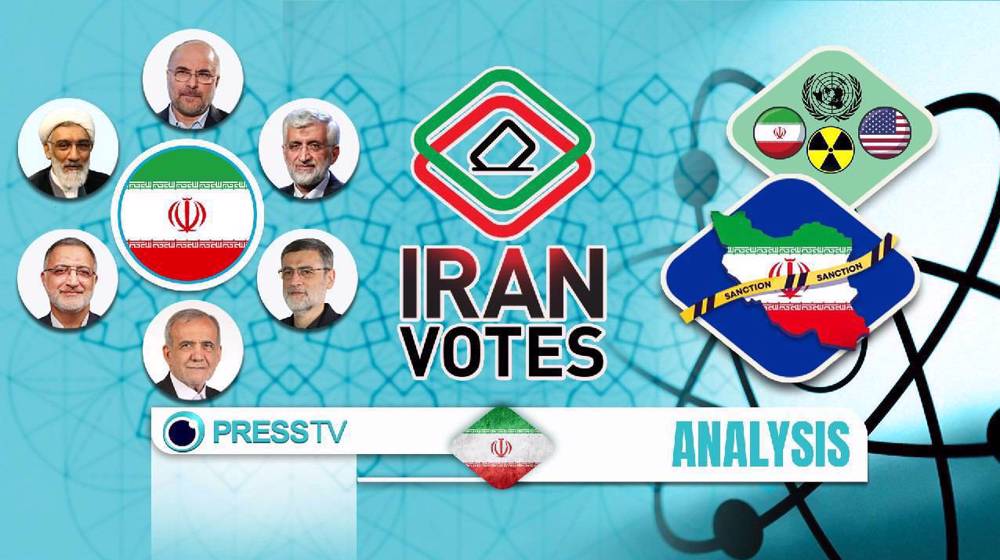
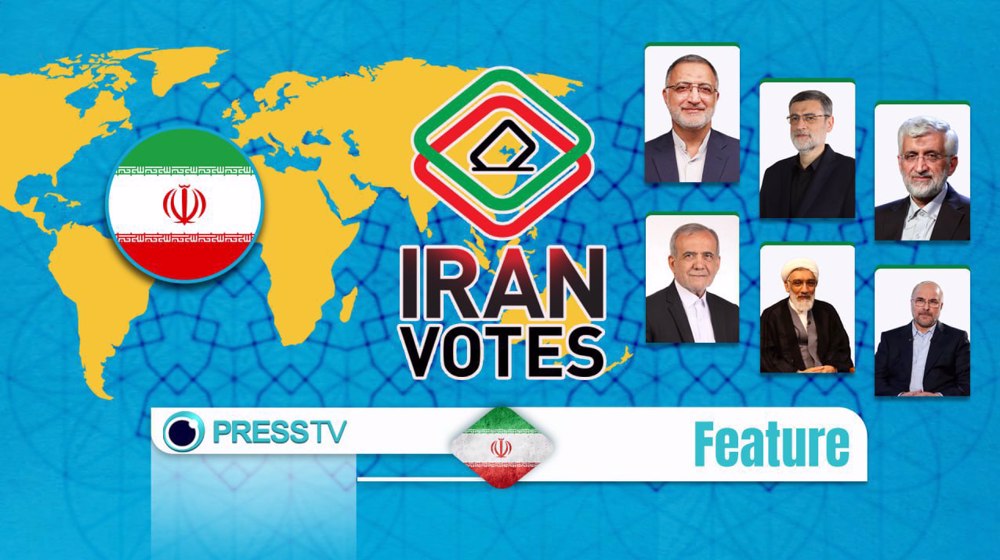
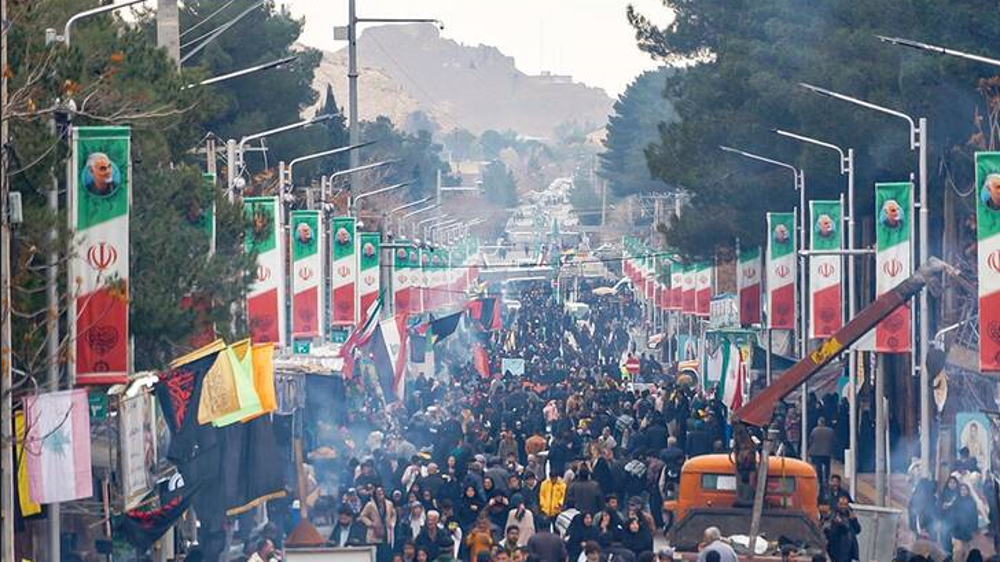
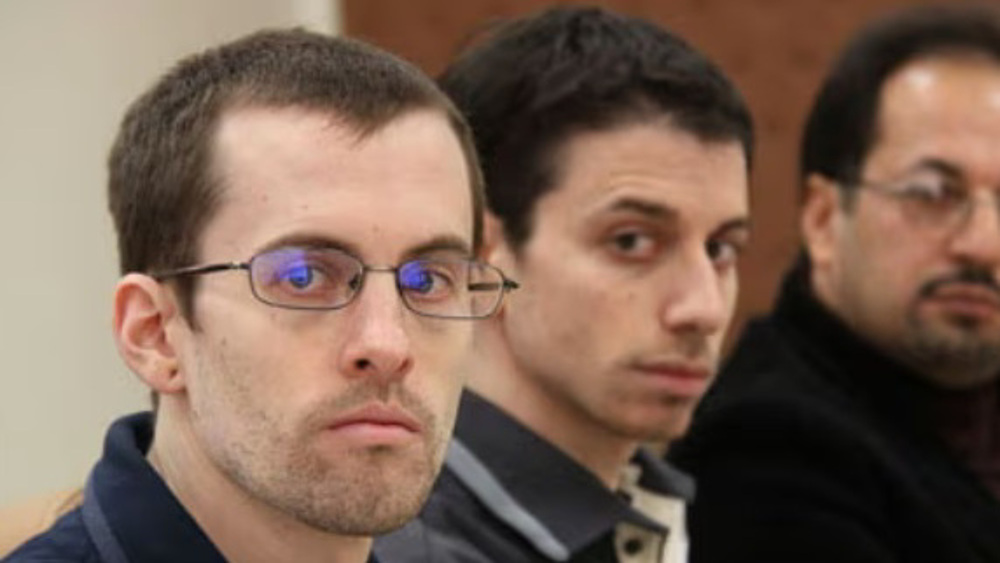
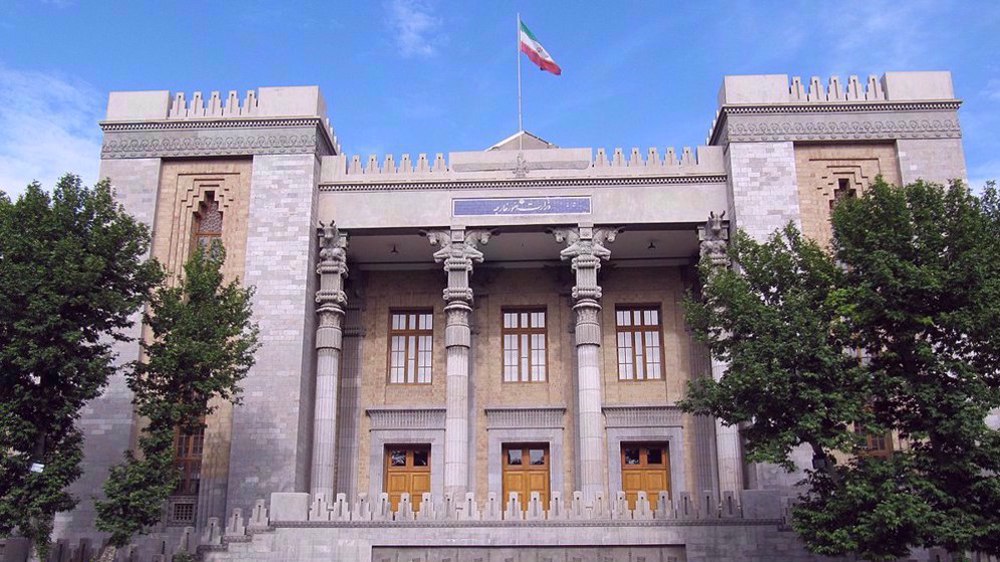




 This makes it easy to access the Press TV website
This makes it easy to access the Press TV website